Commissioning Connect to Work
About Connect to Work
Connect to Work is an employment programme launched by the Department for Work and Pensions (DWP) to help people in England and Wales find and keep work. Providing support to up to 100,000 people nationally, it’s a key part of the government’s Get Britain Working strategy to tackle economic inactivity.
Who Connect to Work helps: It’s aimed at people who are currently not working or face barriers to employment, such as disabilities and health conditions. It also supports those who are employed but at risk of losing their job.
How it’s delivered: Local authorities will receive government grants from DWP. As a local authority, you’ll be asked to design and deliver your own programme based on local needs and services.
How it works: Connect to Work integrates work, health, and skills support using supported employment “place, train, and maintain” model to help people find and sustain work. For most participants, this approach will be based on the Individual Placement and Support (IPS) model, with the Support Employment Quality Framework (SEQF) also being used.
How Shaw Trust can support you
Shaw Trust is an IPS Centre of Excellence and leading charity provider of ‘Exemplary*’ IPS services. Combined with our wealth of experience delivering supported employment services for those furthest away from the workplace, we’re well positioned to support local authorities with their own localised Connect to Work service.
* Our Work to Recovery services was awarded the IPS Grow Quality Mark in 2023. Our Kent and Medway IPS service was awarded the IPS Grow Exemplary Quality Kitemark in 2024.
Working with Shaw Trust
Shaw Trust recognises the increasing opportunity devolution and the move to Local Authority commissioning of employment related services.
If you are interested in collaborating with Shaw Trust on future employment, skills, and health provision, and your service could add value to local delivery, then please consider registering your interest.
What is IPS?
Individual Placement Support (IPS) is an evidence-based approach that helps people with mental and physical health issues find and keep paid employment.
What makes IPS different?
IPS is unique because it links work and health, bringing employment professionals and health professionals together to support a person’s health and wellbeing. It differs from traditional employment support in several ways:
- Focus on real work and rapid job search: Helping people find regular, paid jobs quickly to get them into work as soon as possible.
- Personalised Support: Open to anyone who wants to work, regardless of barriers, with tailored, one-on-one support to match their preferences and strengths.
- Integrated with mental health services and community health teams: employment specialists work closely with mental health teams to provide coordinated support.
- Ongoing support: continuous support for both the employee and employer to ensure job retention and satisfaction.
- Focus on preferences: the job search and placement process is guided by a person’s interests and choices.
- Small caseloads: low caseloads allow employment specialists to provide intensive, personalised support.
- Evidence-based with positive outcomes: IPS has been rigorously tested and consistently outperforms other employment support models, leading to longer job retention, higher earnings, and better mental health and wellbeing outcomes.
Does it work?
IPS programmes are more effective when they closely follow these eight evidence based principles:
- Aims to get people into work
- Open to anyone who wants to work
- Tries to find jobs that people want to do
- Works quickly, with job searches within four weeks
- Employment and health professionals work together
- Employment specialists work with employers
- Offers time unlimited, individualised support for the person and their employer
- Benefits counselling is included so no-one is made worse off by participating.
Research has shown that people who access IPS services are twice as likely to go into work compared to traditional models.
Behind these principles is the IPS Fidelity Scale, a 25-point scale which measures the quality of support given. The fidelity scale ensures that IPS services continuously improve, and provides a gold-standard for measuring the quality of an IPS service.
Shaw Trust impact through IPS
We’re the largest provider of IPS services in the UK, outside the NHS. Last year alone we helped over 9,000 people through 8 IPS programmes across rural and urban communities.
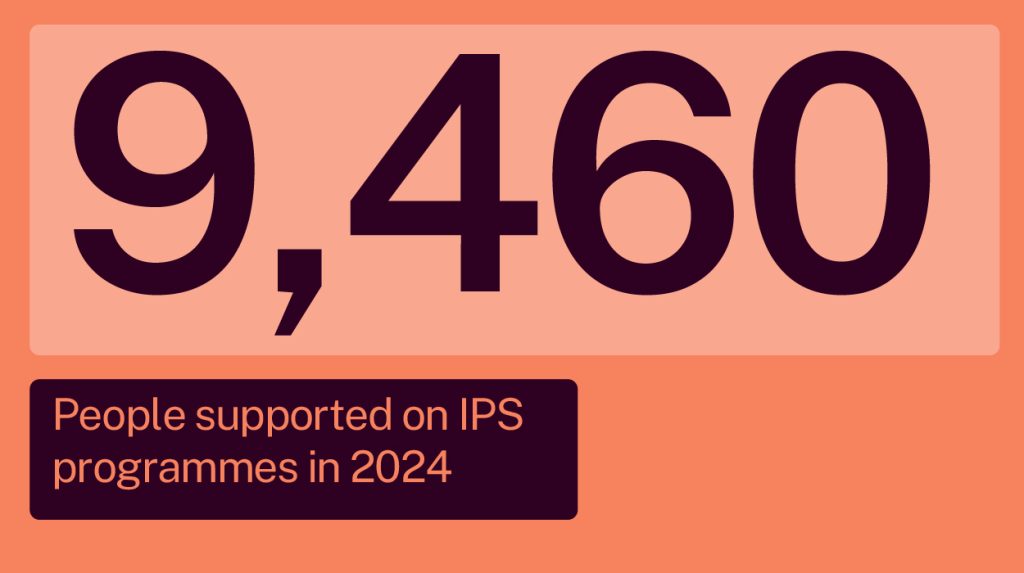
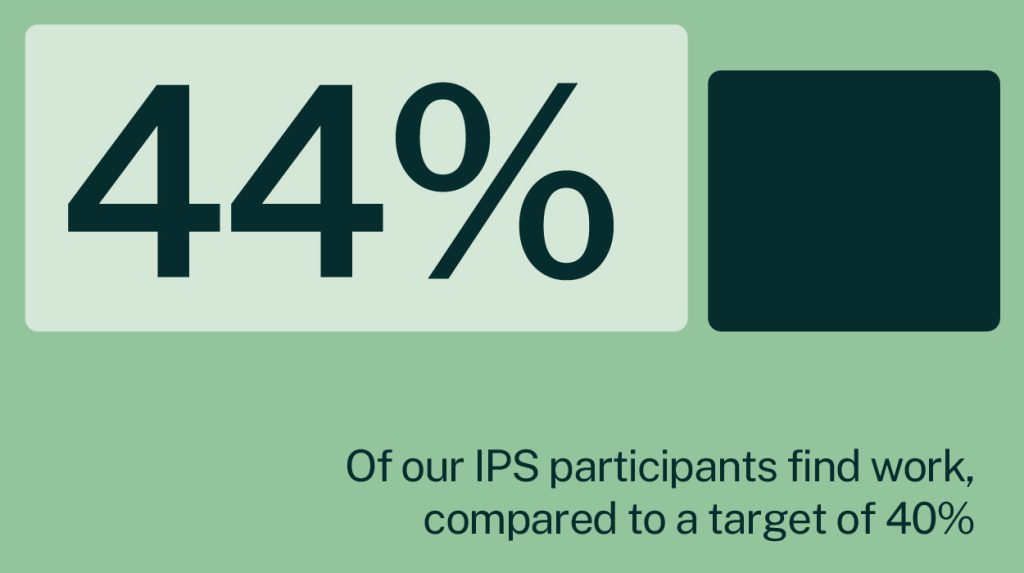
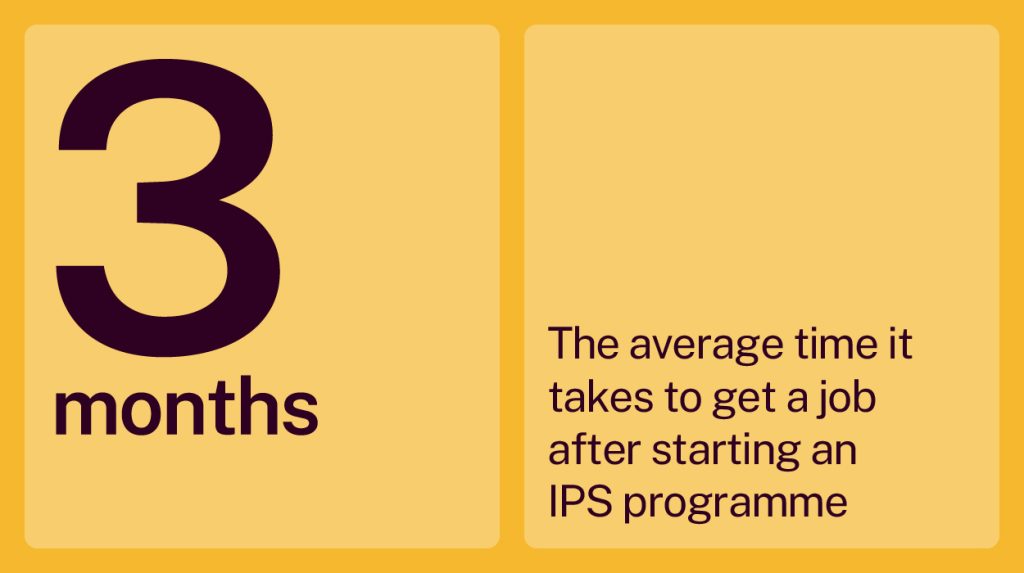
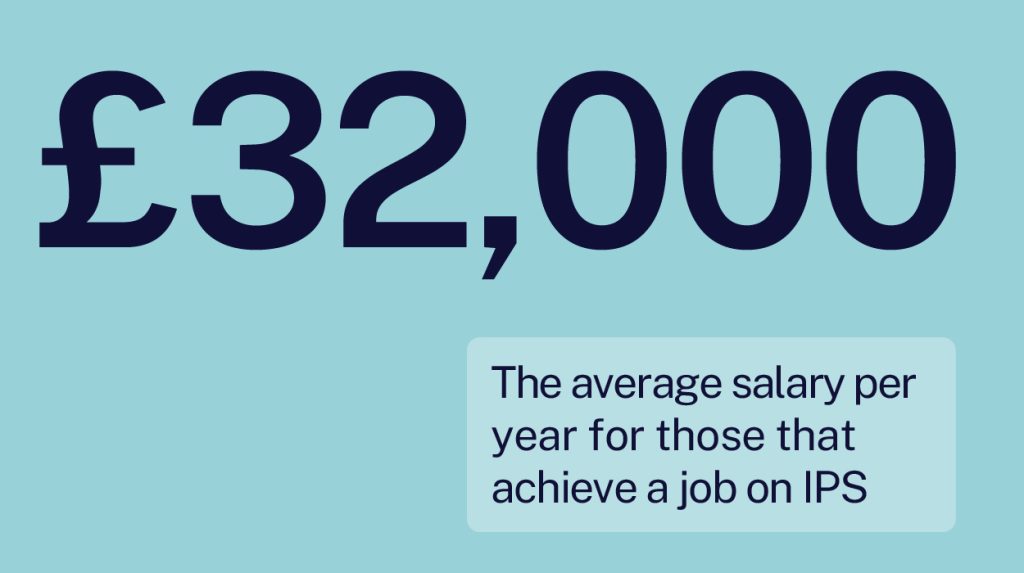
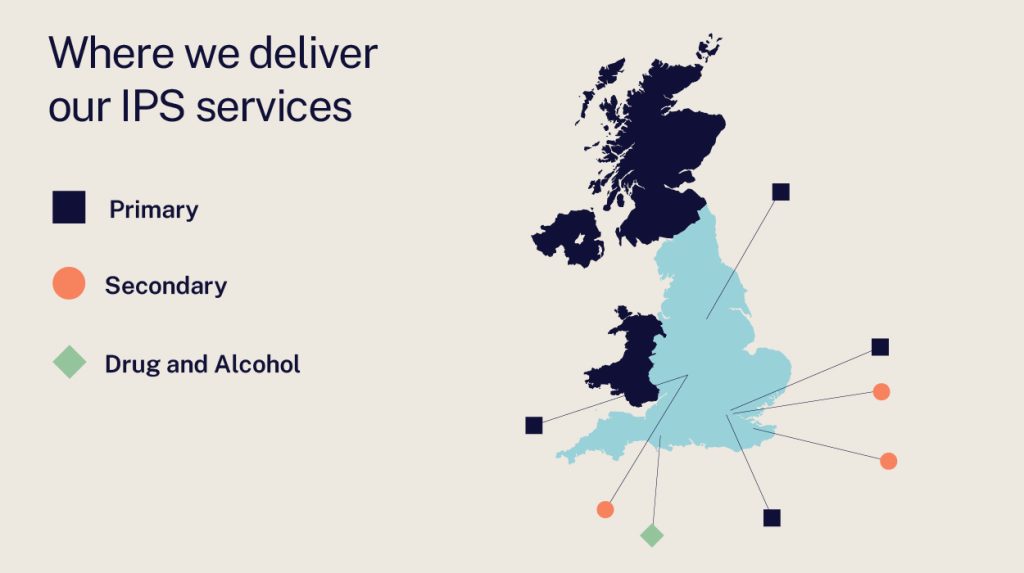
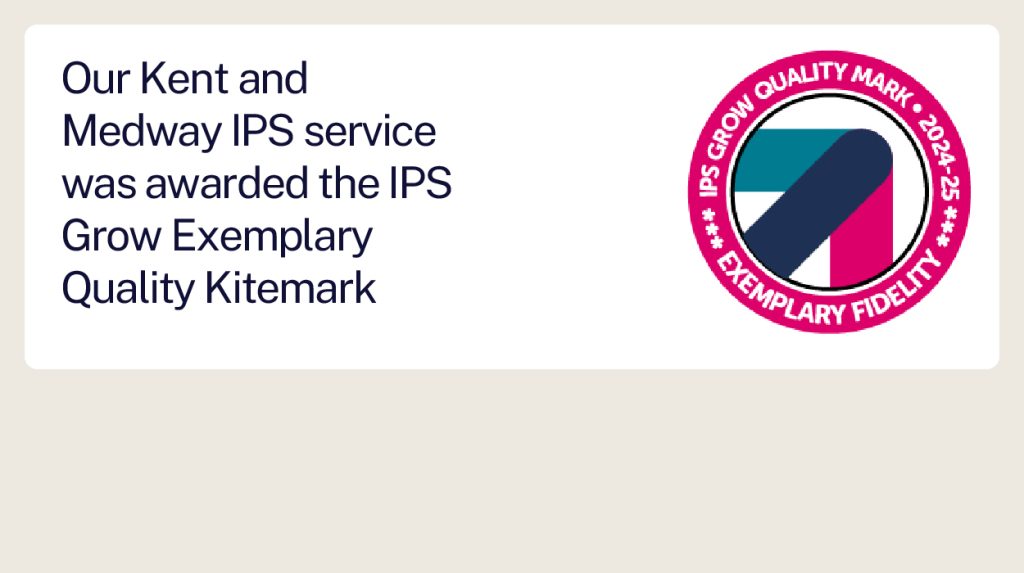
Enquire today
To understand more about our IPS services, our other supported employment models, or discuss how we can help with a localised approach to help people in your community gain and sustain meaningful employment, please contact us via the below.
